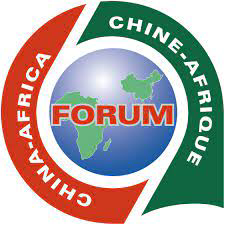By Staff writer

What is it?
Since its establishment by African countries and China in 2000, the Forum on China-Africa Cooperation (FOCAC) has been guiding China-Africa relations through its triennial action plans and its growing institutional arrangements. This webpage aims to facilitate a better understanding of FOCAC by offering an interactive overview on how the forum developed from regular high-level political meetings between China and almost all African countries, focusing onincreasingly diverse topics into a vast ecosystem of funds, institutions, programmes, plans and conferences.
How has it emerged?
The People’s Republic of China started entering into diplomatic relations with countries in Africa shortly after its founding in 1949 and increasingly did so throughout the 1960s and 1970s following the independence of African countries. Growing relations throughout the 1990s led to the creation of FOCAC in 2000 as a platform for regular high-level political coordination between the continent and China, following a proposal by a number of African countries.
Why is it important?
Africa is the world’s most dynamic region in terms of economic and population growth. China has emerged as the continent’s largest trading partner and is the largest single-country source for investments and loans for many African countries. China’s triennial financial commitments to African countries under FOCAC have been risen steadily from USD 5 billion in 2006 for the 2007-2009 period to USD 60 billion in 2015 for the 2016-2018 period and continued on that level at the 2018 FOCAC Summit. Initially these commitments were focused on the provision of different types of loans (concessional, non-concessional, interest-free), but since 2018 also include pledges on investment and development assistance. Not only the extent of which in monetary terms, but more importantly how China engages with African countries makes the growing China-Africa relations one of the most important developments of our time. With a focus on infrastructure, energy, industrialization and technology, China-Africa relations are addressing some of the continent’s key socio-economic challenges in a way that other international partnerships never have. The success of China-Africa relations also increasingly influences approaches of other international partners towards the continent. FOCAC is key for understanding the dynamic and multi-facetted relations between China and African countries.
Meetings of the Forum on China-Africa Cooperation (2000-2021)
FOCAC is Co-chaired by the President of China and a Head of State/Government of an African country. The African Co-Chair changes every six years: Ethiopia (2000-2006), Egypt (2006-2012), South Africa (2012-2018), Senegal (2018-2024). FOCAC meets every three years to take stock of previous cooperation and to agree on priorities for the next three years. The FOCAC meeting location alternates between China and the country of the African FOCAC Co-Chair.
In Beijing in 2006, the FOCAC meeting was for the first time elevated to the Heads of State and Government level. This was repeated in Johannesburg in 2015 and Beijing in 2018. In 2020, the Extraordinary China-Africa Summit on Solidarity against COVID-19 was also held with the participation of Heads of State and Government.
Members of the Forum on China-Africa Cooperation (2000-2021)
In 2000, 46 countries established FOCAC as an exclusive forum for African countries and China with a very limited number of observers from the United Nations System. Over the past two decades FOCAC grew to 55 member countries, including China, all but one African countries, and the African Union Commission. The following members joined FOCAC after its establishment in 2000: (FOCAC 2006: Chad, Liberia and Senegal; FOCAC 2009: Malawi; FOCAC 2012: African Union Commission and South Sudan; FOCAC 2018: Burkina Faso, Gambia and Sao Tome and Principe).
 Africa -China Review Africa -China Cooperation and Transformation
Africa -China Review Africa -China Cooperation and Transformation
